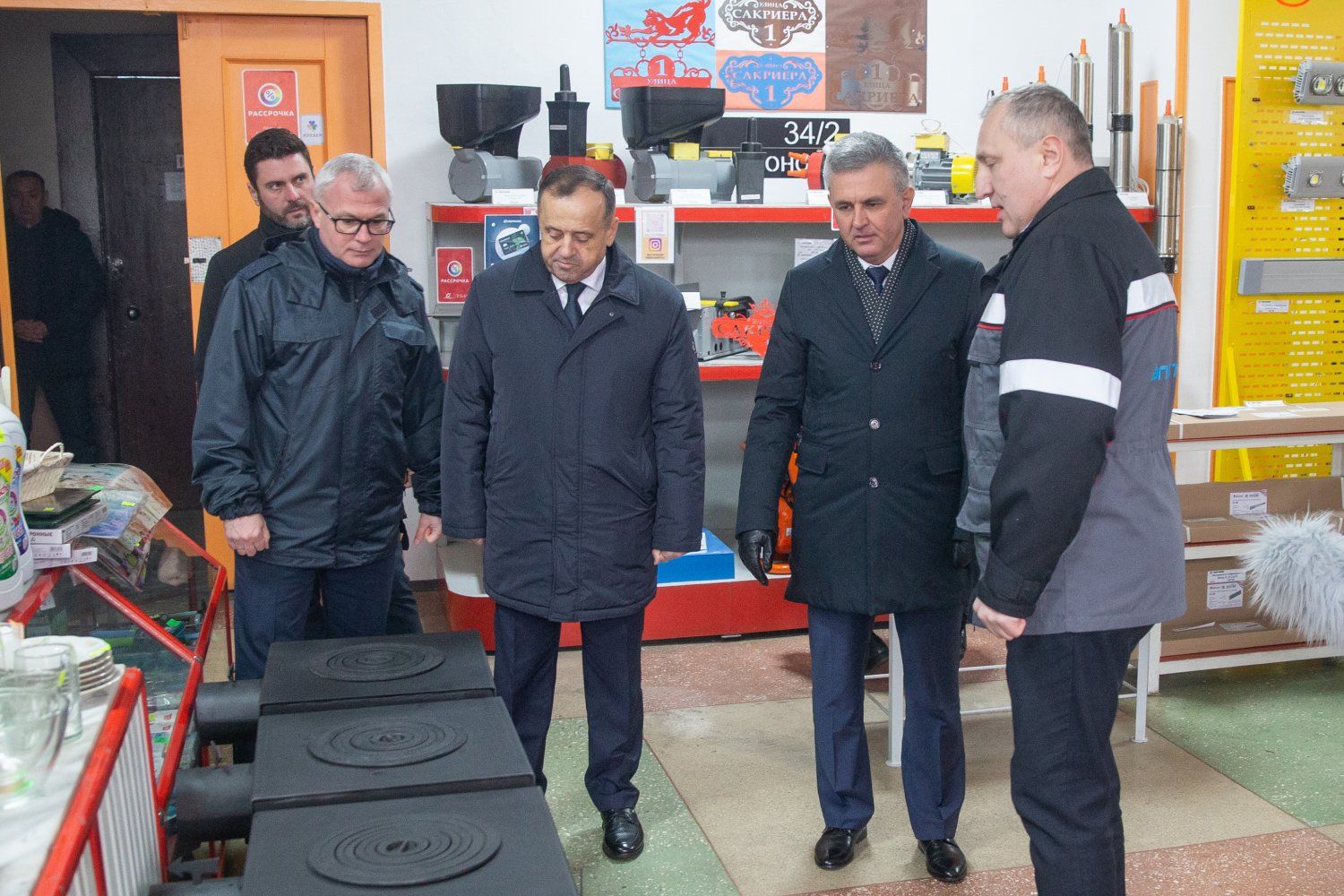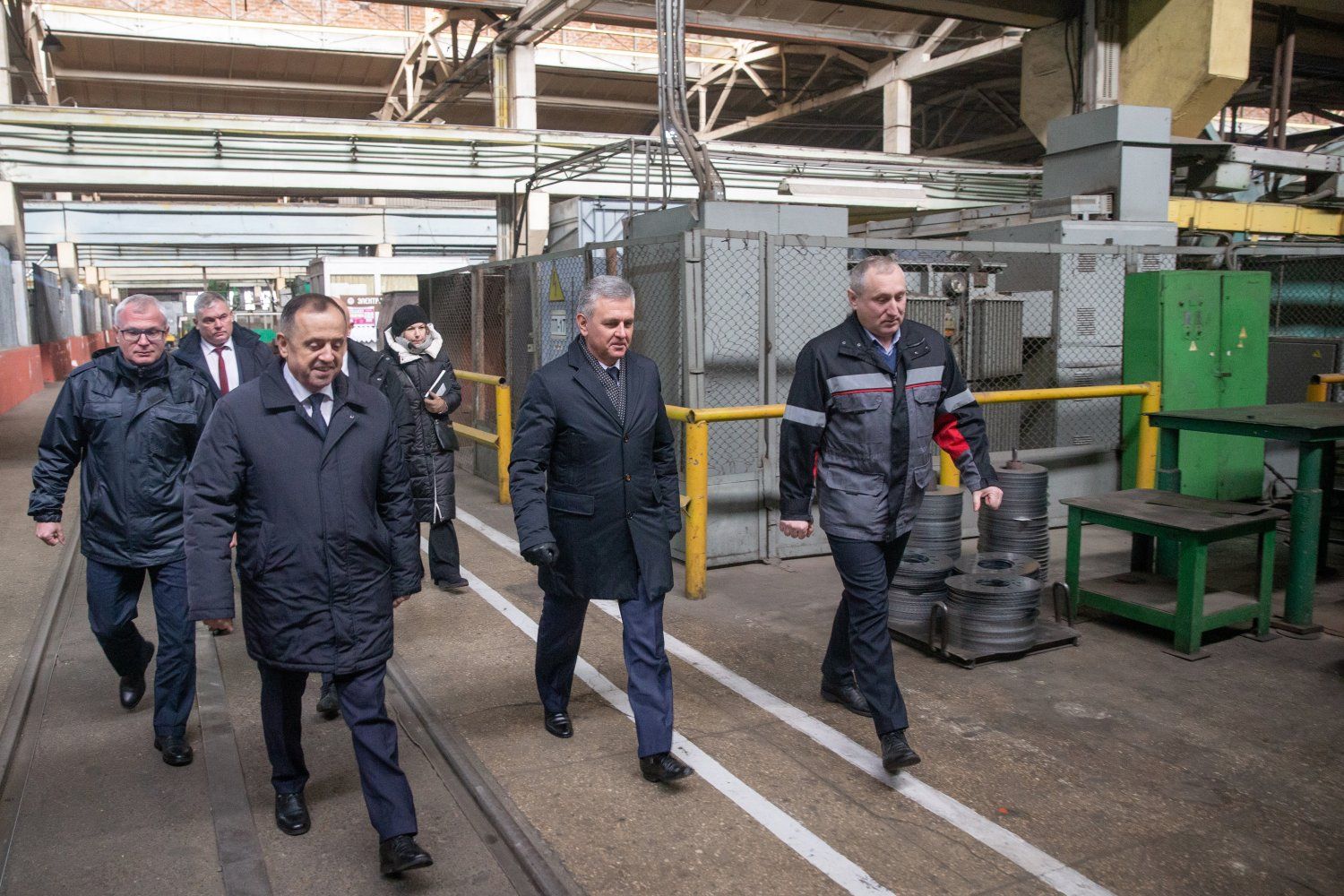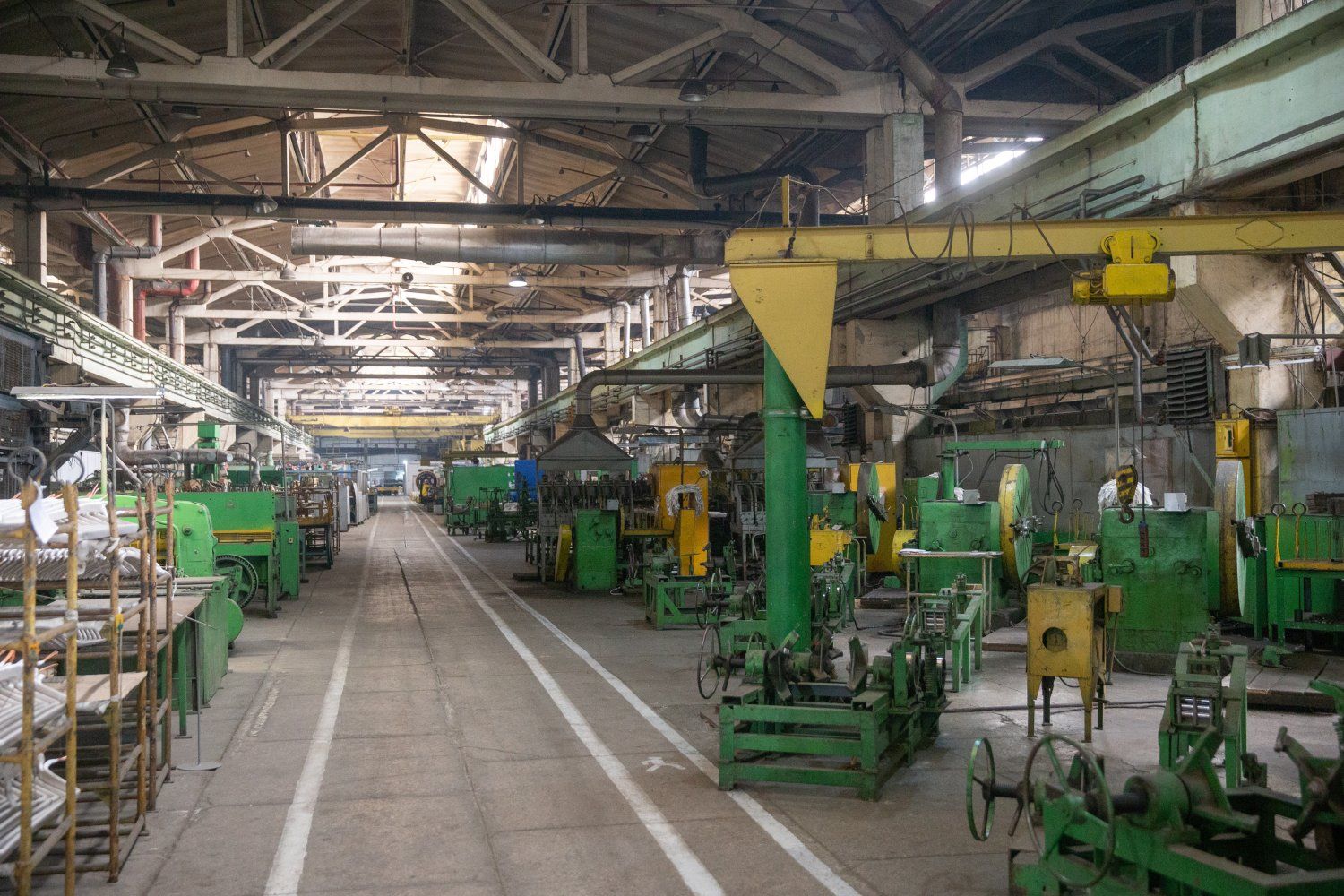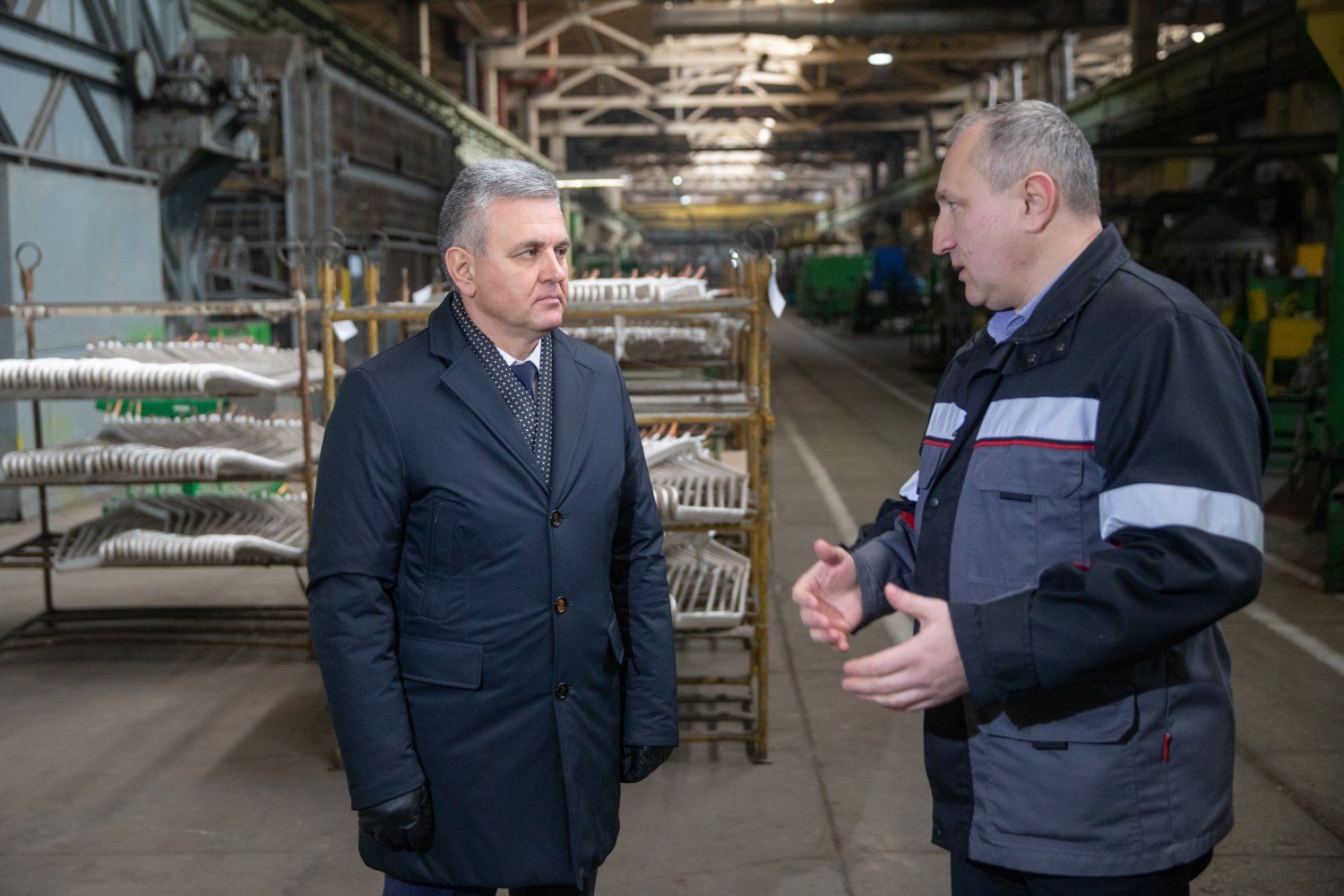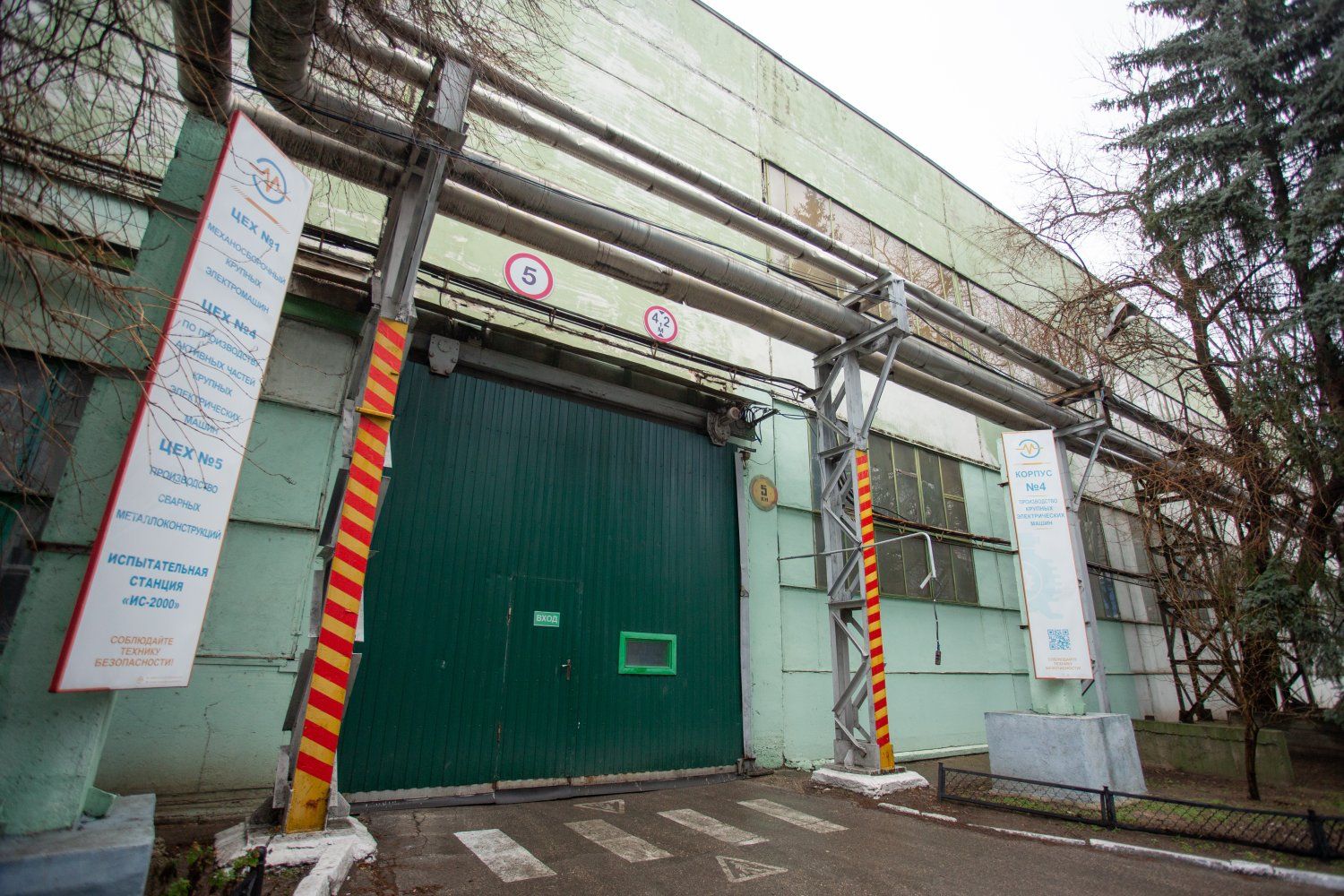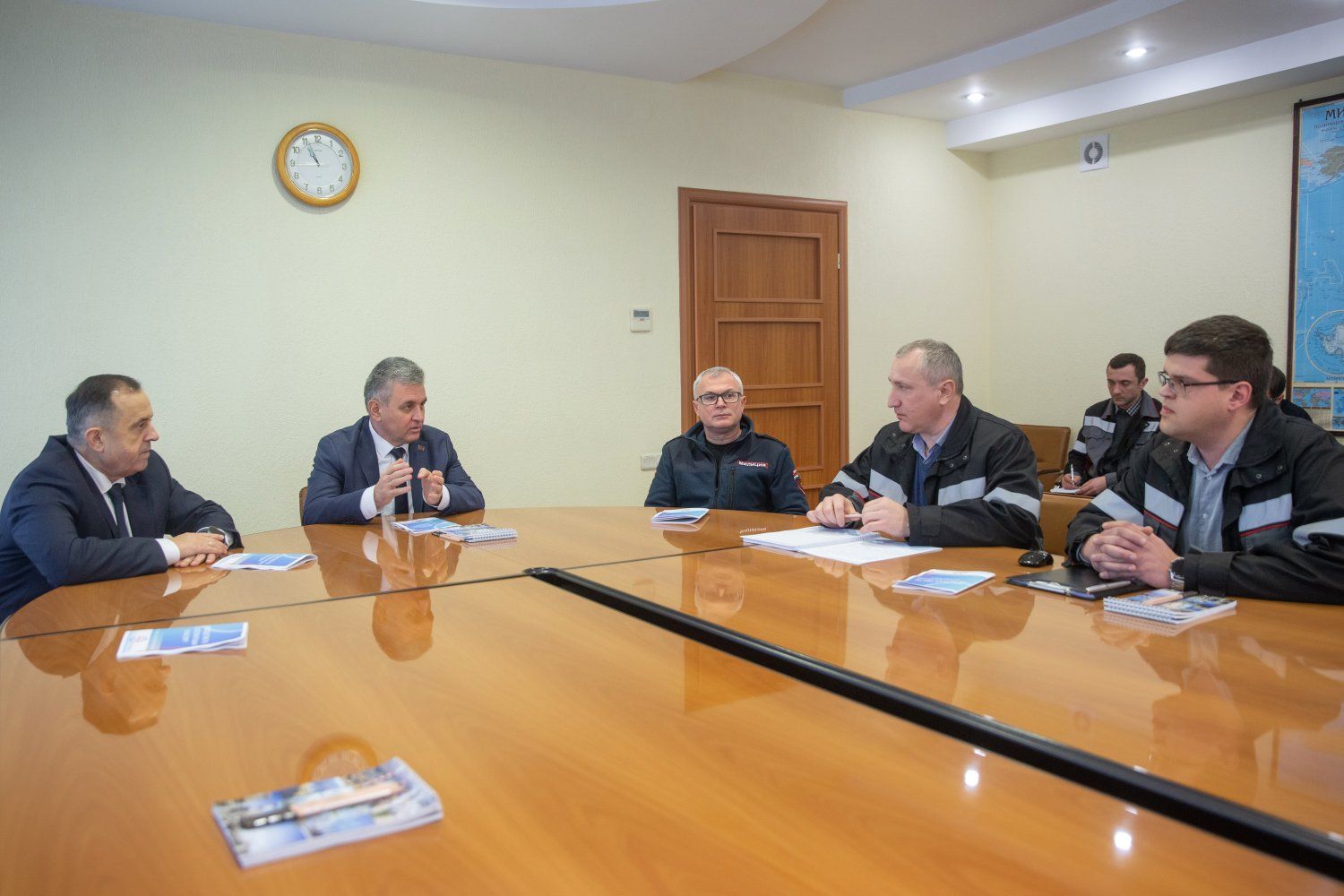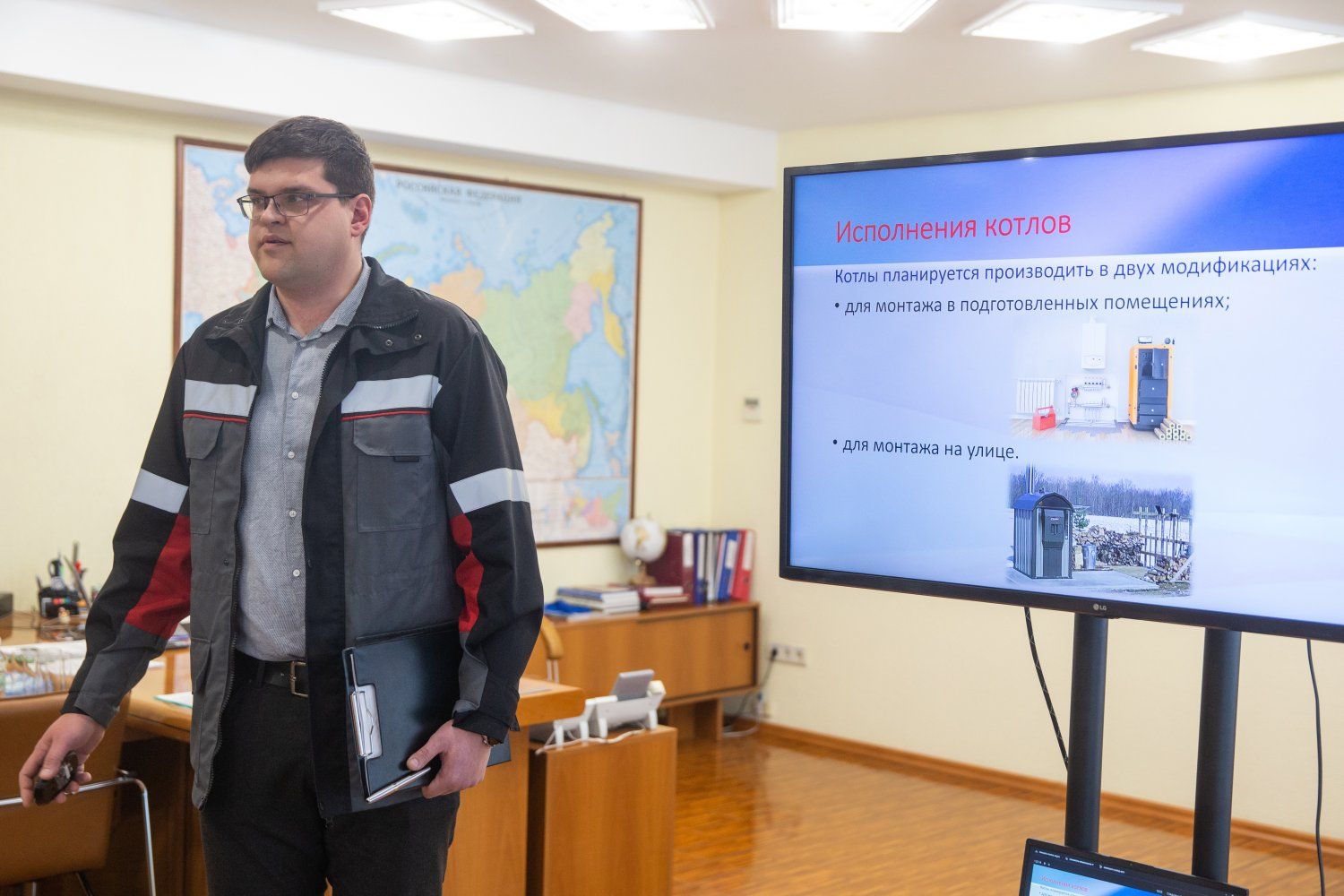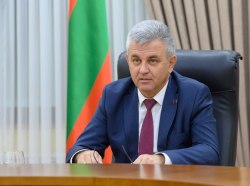The Elektromash plant in Tiraspol was one of the first to switch to night work under the state of emergency declared due to the energy crisis. The company's products are always in demand both in the republic and abroad. The plant responds to the situation and updates the range based on current needs at the same time. They are producing solid fuel boilers among other things. This is the President's instruction. Vadim Krasnoselsky visited the enterprise, talked with the management and staff today. The meeting was attended by the Chairman of the PMR Government Alexander Rosenberg, the Minister of Economic Development Sergey Obolonik, the head of the Ministry of Internal Affairs of the PMR Vitaly Neagu.
400 employees work per shift from 23:00 to 7:00. The production process is from midnight to six in the morning. People are delivered by factory transport. A break for "lunch" is provided at night as in normal daytime conditions. The factory store is open: products are sold to employees at night, and to visiting customers during the day. About two hundred potbelly stoves were sold in a month. The price is stable – it has not changed for two years, the President was told. There is no export at the moment: the main products are stored. In addition, they are engaged in repair and manufacture of spare parts for MGRES, Dubossary HPP, Moldavian Metallurgical Plant, Cement Plant of Rybnitsa. Vadim Krasnoselsky paid special attention to the production of boilers. This equipment is designed for heating rooms and heating water using solid fuels – firewood, coal, briquettes, peat, wood waste. Their use is affordable, environmentally friendly and cost-effective. They talked in the course of the meeting with factory workers about the variety of solid fuel boilers. The most budget-friendly – classic (or traditional) involve manual loading, are easy to use and affordable. One of the disadvantages is the need to frequently add fuel. Long-burning boilers have a capacious loading chamber, allowing the unit to be used for up to several days without "topping up". There are also pyrolysis boilers with a more complex design and pellet boilers, which use wood pellets for kindling. These options are more expensive for the consumer in terms of operation. There is also a gradation of boiler power. Electromash specialists have conducted analytical work. In their opinion, the optimal range of industrial boilers in the current Pridnestrovian realities is semi-automatic from 50 to 500 kW, which will allow heating rooms with an area of 500 to 5000 square meters. Mineral insulation with a thickness of 40 millimeters will help to ensure the estimated efficiency of 92%. Automation will simplify the control system, including remote control. Such boilers are planned to be produced in two modifications – for installation outside and in prepared rooms. The power gradation proposed by the manufacturer is 50 kW. Vadim Krasnoselsky recommended reducing the "step" to 20 kW so that the consumer has a larger choice, justified by the area of the room for heating which the boiler is purchased. As for the needs of the population: for citizens, the production of household boilers with a capacity of 15 kW is envisaged.
Vadim Krasnoselsky asked whether consultations were held with heat power engineers. The President was told that a joint working group had been created.
The first industrial boilers produced at Elektromash are planned to be launched in February. Two 200-kilowatt units are being prepared for installation in a physiopolyclinic and in one of the capital's social institutions. Serial production will begin in early spring.

